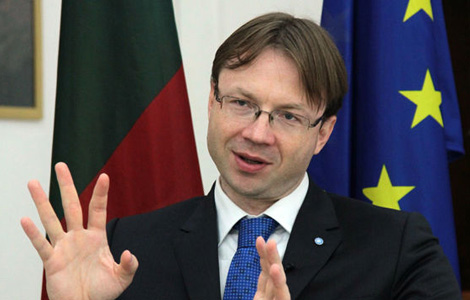Abe sued for libel over Fukushimacomments
Updated: 2013-07-16 20:56
(Agencies)
|
||||||||
TOKYO - Japan's prime minister at the time of the 2011 Fukushima nuclear disaster said on Tuesday he would sue Shinzo Abe, for defamation over an article criticising the emergency operation he supervised during the crisis.
Naoto Kan, now a lawmaker for the opposition Democratic Party of Japan, took the highly unusual step only a few days before an upper house election, on Sunday, in which nuclear power is one of the most hotly debated issues.
Kan has become a vocal opponent of nuclear power in the wake of the disaster, while Abe's ruling Liberal Democratic Party (LDP) wants atomic energy to help pull the economy out of stagnation.
About two-thirds of the public opposes nuclear power.
Kan headed the government when an earthquake and tsunami killed nearly 20,000 people and set off the world's worst nuclear crisis in 25 years when the Fukushima-Daiichi nuclear plant was destroyed, leaking radiation into the sea and air.
In an article from May 20, 2011, still visible on Abe's website, Abe criticised Kan for taking credit for the decision to cool the melting nuclear reactors with seawater. He said Kan had not been aware of the operation at first, then stopped it only to finally restart it after consulting experts.
"The content is based on totally false information. The article has severely damaged my honour," Kan told a news conference at parliament, adding that he had asked Abe to remove the article several times.
Kan demanded that Abe immediately delete the story, apologise and pay 11 million yen ($110,100) in compensation.
Kan has been credited with playing an important role in stopping the crisis from getting worse by preventing the operator of the crippled plant, Tokyo Electric Power, from abandoning the plant and pulling out its workers.
Cooling the nuclear reactors with seawater was seen as key to preventing the situation at the crippled plant from getting completely out of control.
All of Japan's 50 nuclear reactors were hut down after the disaster.
A decision by the previous government to re-start two of them last year was met with the biggest protests in decades and contributed to the government's defeat in a December election.
Still, opinion polls show strong support for the LDP, buoyed by hopes that Abe's hyper-easy monetary policy, public spending and structural reform will bolster growth and jolt Japan out of years of stagnation. ($1 = 99.8750 Japanese yen)
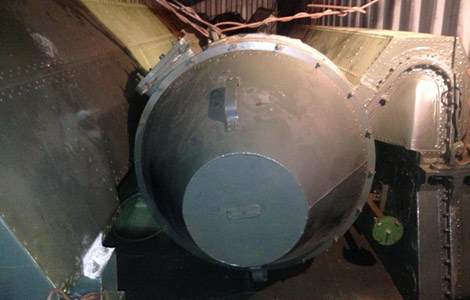
 Panama finds 'missile equipment' aboard DPRK ship
Panama finds 'missile equipment' aboard DPRK ship
 Free on his feet
Free on his feet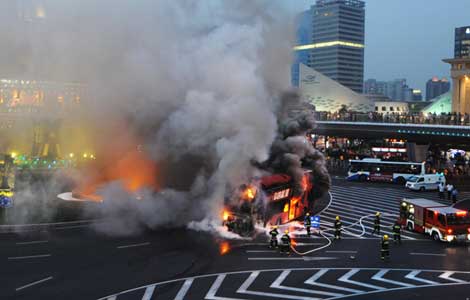
 Extreme heat causing vehicle fires
Extreme heat causing vehicle fires
 Men, you look good in slim elegant cut
Men, you look good in slim elegant cut
 Luxury dresses in plastic
Luxury dresses in plastic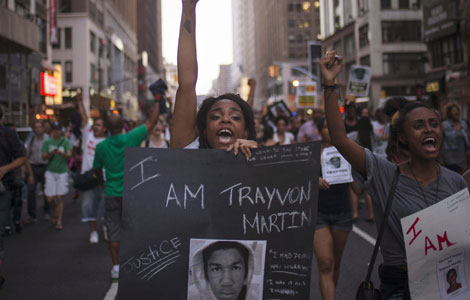
 Obama urges restraint amid protests
Obama urges restraint amid protests
 Putin wants Snowden to go, but asylum not ruled out
Putin wants Snowden to go, but asylum not ruled out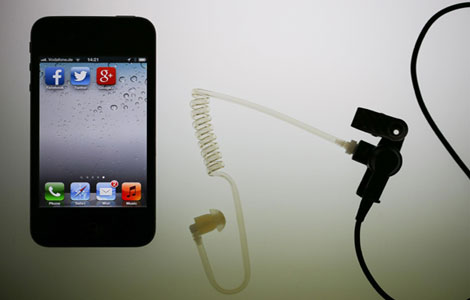
 Apple to probe death of Chinese using charging iPhone
Apple to probe death of Chinese using charging iPhone
Most Viewed
Editor's Picks

|

|

|

|

|

|
Today's Top News
Asiana crash passengers sue Boeing
Li highlights economic restructuring
Merkel's rivals go on attack over US spying
'Missile equipment' found aboard DPRK ship
Egypt's interim govt takes oath
Gay marriage to be legal in UK
China signs cooperation agreements with Belarus
Philippines' accusation refuted
US Weekly

|

|
